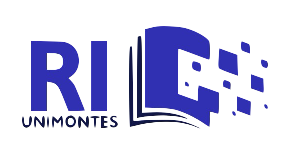Use este identificador para citar ou linkar para este item:
https://repositorio.unimontes.br/handle/1/851Registro completo de metadados
| Campo DC | Valor | Idioma |
|---|---|---|
| dc.contributor.advisor | Gilberto, Gilberto | - |
| dc.contributor.author | Machado, Jackelany de Souza França Durães | - |
| dc.date.accessioned | 2023-10-26T19:37:05Z | - |
| dc.date.issued | 2023-09-01 | - |
| dc.identifier.uri | https://repositorio.unimontes.br/handle/1/851 | - |
| dc.description.abstract | The research portrayed here was guided by the objective of analyzing the relationship teacher integrative curriculum materials of Mathematics and Chemistry, giving rise to this dissertation, which is organized in a multipaper format, with an introduction chapter, two articles and a chapter with final considerations. Questions were oriented towards getting to know Mathematics and Chemistry incorporated into curriculum materials that integrate the Natural Sciences area, evaluated and distributed within the scope of PNLD 2021; and to discuss how two Chemistry teachers read, interpret and evaluate curriculum materials that integrate this area of knowledge. The theoretical framework refers to studies on curriculum integration; the Knowledge of Curriculum Embedded Mathematics and Chemistry — KCEMC model; and the teachers’ relationship with the materials. The teacher’s manual was analyzed and the reproduction of two projects in the student’s book of a curriculum material, characterized as Integrator Project, intended for High School. An interview was also carried out with two teachers who teach Chemistry, based on a discussion group, focusing on their interactions with the curriculum resources. The results indicate the lack of transparency for the teachers about the conceptualization of curriculum integration, work with projects, organization of the contents and degree of complexity of the activities (cognitive demands), both in the texts of the introductory part of the material and in the texts with orientations for the development of the analyzed projects, which can restrict the teaching professional knowledge and imply teaching practices that can diverge from the purposes of the curriculum material and compromise the learning of both teachers and students. | pt_BR |
| dc.description.sponsorship | Other | pt_BR |
| dc.language.iso | pt_BR | pt_BR |
| dc.subject | Educação Matemática | pt_BR |
| dc.subject | Educação Química | pt_BR |
| dc.subject | Materiais Curriculares Integradores | pt_BR |
| dc.subject | Conhecimento Profissional Docente | pt_BR |
| dc.title | Relação professor-materiais curriculares: estudo na perspectiva da integração Matemática e Química | pt_BR |
| dc.type | Dissertacao | pt_BR |
| dc.subject.area | Ciencias Humanas | pt_BR |
| dc.subject.subarea | Ciência Política | pt_BR |
| dc.description.resumo | A pesquisa aqui retratada orientou-se pelo objetivo de analisar a relação professor-materiais curriculares integradores de Matemática e Química, dando origem a essa dissertação que é organizada em formato multipaper, sendo um capítulo de introdução, dois artigos e um capítulo com as considerações finais. Os questionamentos foram orientados para conhecer a Matemática e a Química incorporadas a materiais curriculares integradores da área de Ciências da Natureza, avaliados e distribuídos no âmbito do PNLD 2021; e para discutir como duas professoras de Química leem, interpretam e avaliam materiais curriculares integradores dessa área do conhecimento. O referencial teórico reporta-se aos estudos sobre integração curricular; ao modelo do Conhecimento da Matemática e da Química Incorporadas ao Currículo (Knowledge of Curriculum Embedded Mathematics and Chemistry — KCEMC); e à relação dos professores com os materiais. Foi analisado o manual do professor e a reprodução de dois projetos no livro do estudante de um material curricular, caracterizado como Projeto Integrador, destinado ao Ensino Médio. Também foi realizada entrevista com duas professoras que ensinam Química, a partir de um grupo de discussão, com foco em suas interações com os recursos curriculares. Os resultados indicam a ausência de transparência para as professoras sobre a conceitualização de integração curricular, trabalho com projetos, organização dos conteúdos e grau de complexidade das tarefas (demandas cognitivas), tanto nos textos da parte introdutória do material quanto nos textos com orientações para o desenvolvimento dos projetos analisados, o que pode restringir o conhecimento profissional docente e implicar práticas de ensino que podem divergir dos propósitos do material curricular e comprometer as aprendizagens tanto dos professores quanto dos estudantes. | pt_BR |
| dc.embargo.terms | aberto | pt_BR |
| dc.embargo.lift | 2023-10-27T19:37:05Z | - |
| dc.contributor.referee | Mota, Janine Freitas | - |
| dc.contributor.referee | Lopes, Rieuse | - |
| dc.contributor.referee | Perovano, Ana Paula | - |
| dc.contributor.referee | Ribeiro, Rogério Marques | - |
| Aparece nas coleções: | Dissertações | |
Arquivos associados a este item:
| Arquivo | Descrição | Tamanho | Formato | |
|---|---|---|---|---|
| Machado, Jackelany de Souza França Durães_Relação professor-materiais curriculares_2023.pdf | 1,31 MB | Adobe PDF | Visualizar/Abrir |
Os itens no repositório estão protegidos por copyright, com todos os direitos reservados, salvo quando é indicado o contrário.
